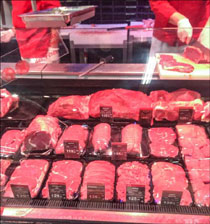



RAMP UP Act promises to strengthen regional meat processors across the US
New bipartisan legislation aims to expand the capacity of small and medium-sized meat processors and strengthen the US meat supply chain.Just 50 meat plants process 98 percent of meat in the United States. This level of consolidation makes the industry particularly vulnerable to disruptions - a fact that has become evident recently. When COVID-19 outbreaks among workers forced a number of plants to temporarily slow or halt production, the entire meat supply chain backed up. As a result, farmers were left with nowhere to sell their animals, and consumers saw higher prices and meat shortages at their grocery stores.

To prevent this kind of bottlenecking in the future, a bipartisan group of US Representatives introduced a bill to help small and mid-sized meat processors expand their capacity. The bill, known the Requiring Assistance to Meat Processors for Upgrading Plants (RAMP-UP) Act, would offer grants to existing meat and poultry processors to help them make facility upgrades, cover the cost of federal inspection, and sell their products across state lines.
"Small and medium sized plants can ensure greater resilience and food security in times of crisis, as well as flexibility in marketing for farmers and ranchers," said National Farmers Union President Rob Larew in a statement of support. "By helping meat processing plants cover the often prohibitive cost of federal inspections, the RAMP UP Act will bolster a strong and reliable meat supply chain for farmers and consumers alike."


